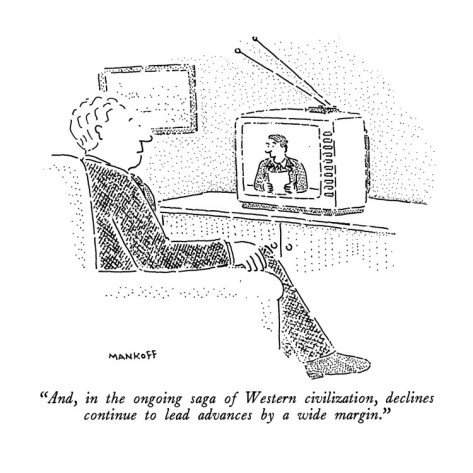LeaderShift: The Challenge & Response for Western Civilization
Here are my closing thoughts on a book describing the background research into the soon-to-be-released LeaderShift book. I am more convinced now than ever that Western Civilization cannot only be saved, but be placed in a better position than ever before when people learn the systemic principles behind the Six Duties of Society and the Five Laws of Decline. Don’t take my word for it, do your own studying and use this article and the last one as a place to start. The LIFE Business is a group who are committed to making a difference by first making a difference in their own families life.
Sincerely,
Incidentally, the Federalist feared the Articles of Confederation would fall into chaos and civil war like the ancient Greek society did. To avoid this scenario, they created a stronger federal government with checks against the FLD. In truth, however, what resulted was quasi-federal/quasi-state governmental structure that left sovereignty to be debated between the states and federal government. This is remarkably similar to the Roman Republic’s divided sovereignty between the Senate and People. Consequently, just as the Roman Republic’s struggle for sovereignty was settled by military force in its civil war, so too did America’s Civil War settle the sovereignty question. Furthermore, just as the Roman Republic’s pendulum moved from the chaos of civil war to concord in the early Roman Empire, followed by increasing coercion and enervation of the people of the late Empire, so too did the American Republic fall into chaos during its civil war to concord in the early American Empire, followed by increasing coercion and enervation of the people in the later America Empire. In both instances, the pendulum’s momentum carried it from chaos through concord and into coercion. In sum, the Federalist fear of Greek-like chaos caused them to propose and implement Roman-like sovereignty debates culminating in civil war and finally coercion. Indeed, the FLD predicts this sequence in theory as accurately as history displays it in fact. The author believes this is the key lesson to learn from political history: How society can satisfy the SDS without correspondingly activating the FLD.
Each Anglo-Saxon case-study will be analyzed to determine how they satisfied the SDS. All three societies grew and prospered by fulfilling the SDS; however, all three also experienced the FLD within society. What, if any, lessons did the Anglo/Saxon’s learn from their ancient predecessors? The author seeks to identify the similarities and differences between the ancient and modern methods of blocking the FLD. Each society will be summarized for what it added to the political wisdom of hot to fulfill the SDS and check the FLD. Interestingly, America’s Founding Fathers studied the history of each previous society. What conclusions did they draw from these historical examples? Moreover, what methods did they implement into the Constitution to improve the SDS and check the FLD? Although the jury is not complete on the Anglo/Saxon societies, the currents reports are not optimistic. In many ways, the modern siblings are repeating the same systematic mistakes as the Greco/Roman societies. Fortunately, today’s political leaders, by studying the SDS and FLD, can respond to the challenge and withdraw the Anglo/Saxon societies from the approaching precipice.
The final section of the book proposes a model for society based upon feeding the SDS and starving the FLD. The proposal builds in checks upon the FLD and encourages the SDS, balancing the drift between chaos, on one side, and coercion on the other. The Quest for Concord, the middle position of the pendulum, between the equally harmful extremes, is attainable. Regrettably, concord has never been sustained for more than a generation. The author will describe how all past societies failed through systematic ignorance of the dangers within the FLD. Fortunately, when the Five Laws of Decline are understood and checked, the author believes the West can achieve its quest for concord. This book then, isn’t an intellectual perusal through the history of a lost cause. Rather, it is written in the hope of reawakening the quest for concord and pointing out the adjustment that need to me made within society in order to attain it. This book provides a step-by-step roadmap for America, and the West, to step off of the political precipice and finally achieve the 2500 year quest for concord.
Historian, Arnold Toynbee, wrote how each society faces “challenge and response” crisis that demand great leadership to solve. While many may have written Western Society’s obituary, believing it has entered its twilight years, the author, in contrast, believes the West drift towards coercion is due to the “challenge” crisis not being addressed and solved. In truth, without understanding the systemic reason for the challenge, it would be practically impossible to respond to it. This book provides the systemic framework to make a “response” possible. Western Civilization’s rebirth is within reach. Without exaggeration, if this challenge is ignored much longer, Western society will fall. The once great Western Civilization will be added to the dustbin of history as another “rise and fall” tragedy. The question is: will Western Society learn the lessons of the SDS and the FLD soon enough to divert destruction?













